
It’s distressing, for sure.There could be many reasons. Academic coaching and tutoring at the CFLC (bit.ly/BC-connors) may be just the thing, but I’d also suggest a talk with your advisor. We all want you to succeed here!
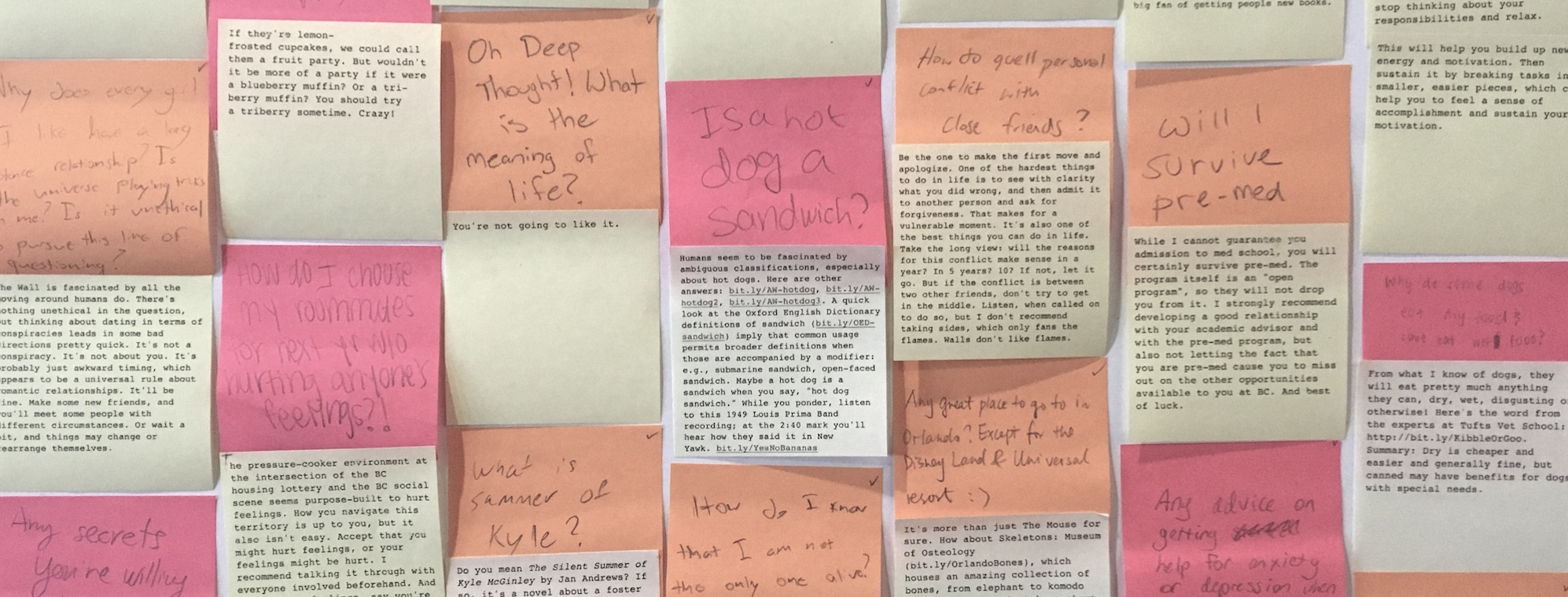
Answering questions at Boston College O’Neill Library

It’s distressing, for sure.There could be many reasons. Academic coaching and tutoring at the CFLC (bit.ly/BC-connors) may be just the thing, but I’d also suggest a talk with your advisor. We all want you to succeed here!
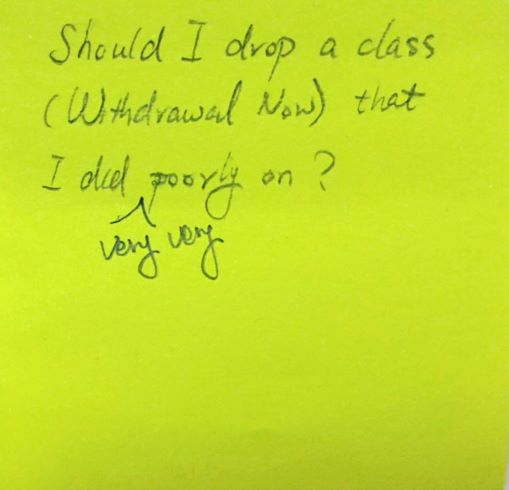
Talk this one over with the professor and your advisor, to see how realistic it is to still succeed in this class, and the consequences of withdrawing at this stage. I’m sorry the semester’s started out this way for you.
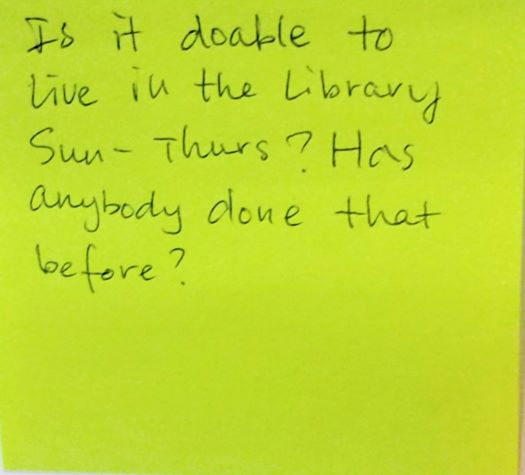
It works for me very well, but for you living and breathing (and needing food and sleep and showers) types, I think it would get very unpleasant pretty quickly!
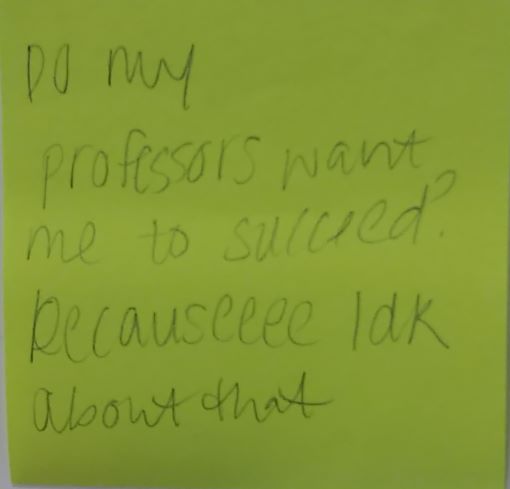
As a whole, yes. I can’t speak for all of them. Some may set up what seem like barriers to you, but are intended as challenges to deepen your knowledge of a subject. IOW, they want you to succeed, but they want you to succeed at a challenging level. I recommend a) meeting with the professor to clarify objectives and get help, b) seeing if there’s a tutor for your class at the CFLC (bit.ly/BC-connors), and c) organizing a supportive study group.

My librarian friends who are blessed with lungs say take a deep breath — it’s OK to chill and regroup. I know you’ve heard it before, but life is a marathon, not a sprint. You may want try chemistry again next semester, or, perhaps, it’s time to redirect your academic focus. Consider checking in with your academic advisor. Take a look at the classic, What Color is your Parachute (O’Neill Library HF5383 .B56). Even though it’s for job hunting/career stuff, it may help you think about what gives you joy, your interests, and your strengths.
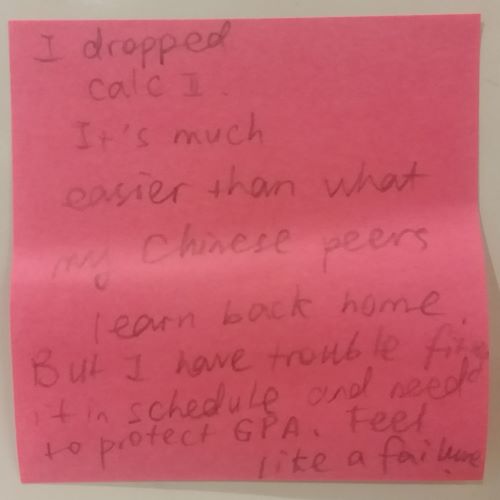
You’re not a failure! It sounds like you made a very rational decision. I hope you got input from your advisor? Also, if you feel a burning need to learn the material covered in calc II (and you might), you can take it later; this year, or even all your college years, are not your only opportunities.
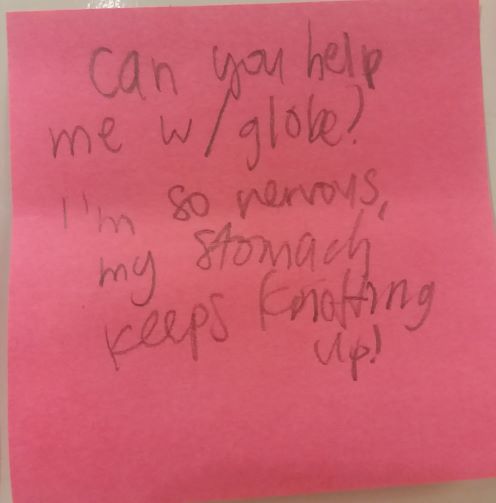
I’m not sure I can, but the tutors at Connors Family Learning Center can: bit.ly/BC-connors. And librarians can help you with the research (library.bc.edu/ask-a-librarian). Good luck! I know you can do this.
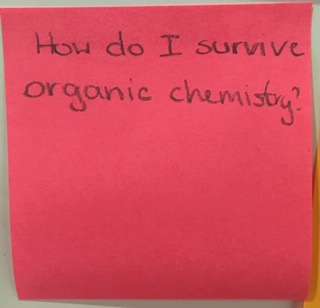
Mostly through hard work and putting in the time. Orgo isn’t easy! But you can do this, and there is help. Try the Connors Family Learning Center (bit.ly/BC-connors) and maybe form a study group in your class.
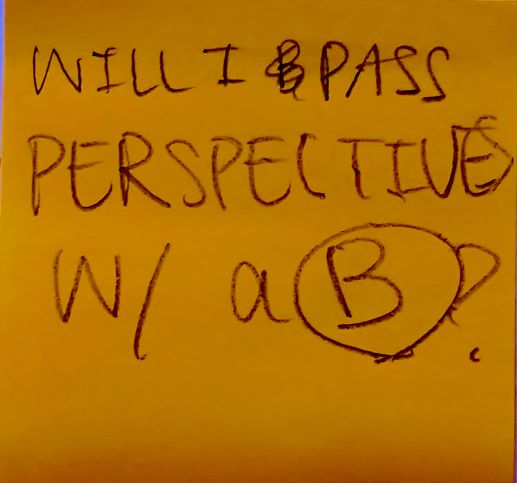
You have my complete faith! If you’re concerned, I recommend finding a group to study with, getting help on papers at the CFLC (bit.ly/BC-connors), and getting help with research at library service desks, or checking out this handy guide: library.bc.edu/bible-quick-start.
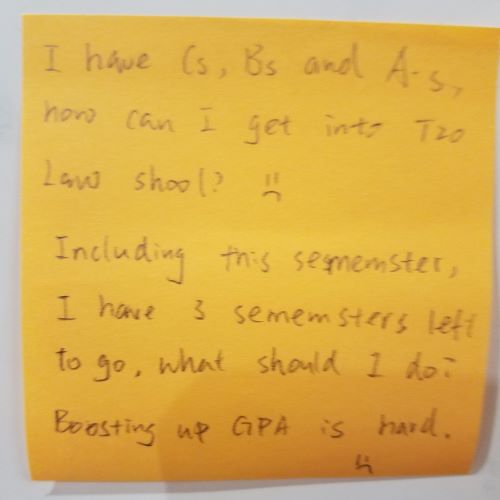
Boosting up GPA is hard, but I’m sure you can do this. Take advantage of all the help on offer: CFLC (tutoring & academic coaching: bit.ly/connors), meet with all of your professors, create study groups with other students, find productive places to study in BC Libraries, work with librarians on all of your research papers (library.bc.edu/ask-a-librarian), and then study like mad for the LSAT’s. You’ve got this!

I have faith in you! If things don’t go as well as you hoped, please try some peer tutoring at the Connors Family Learning Center (bit.ly/BC-connors)

Read more books, read good books, be a good person: excellent, timeless advice!
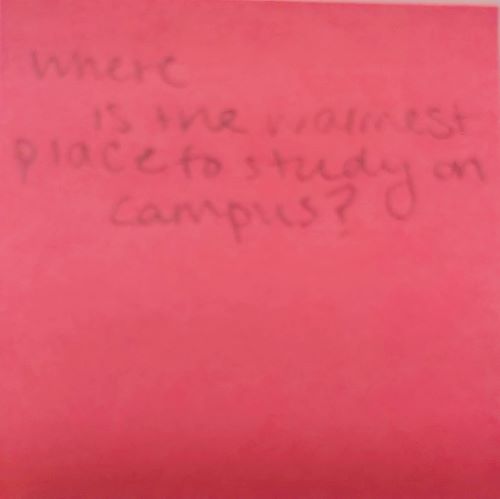
I asked one of my helpers, and she said that the vestibules as you enter Stokes N are both very toasty, and surprisingly nice places to sit and concentrate. The warmest place she’s found (she’s done a lot of research on this) is in the cloak room at the Burns Library, but it would be a terrible study space. Same for the warmest spot she’s found in O’Neill; the level 2 women’s restroom!`

I’m afraid the answer is study – but maybe you can study more effectively, if you don’t have the time to study for more hours. I’d check in with both the professor and the Connors Family Learning Center (bit.ly/BC-connors) for advice and tutoring.
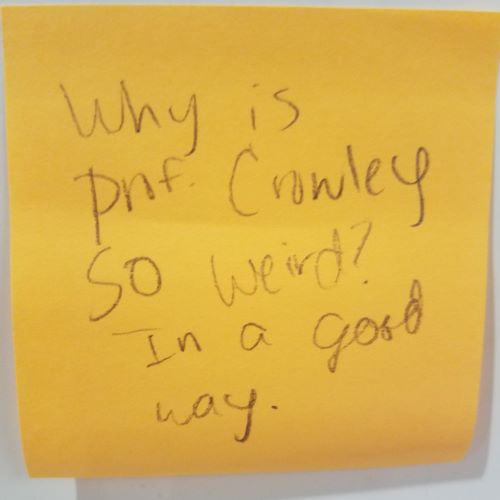
You see, being a library wall, I’ve come to know academics pretty well. They’re all a little… eccentric. A whole lot of specialized knowledge does that to you. One famous academic once referred to it as the “re-entry from orbit” problem (bit.ly/percy-orbit) You spend weeks or months or even years working on an intractable problem that few people in the world even know exists. It can be hard to return to everyday life. Does that answer the specific weirdness you’ve observed?
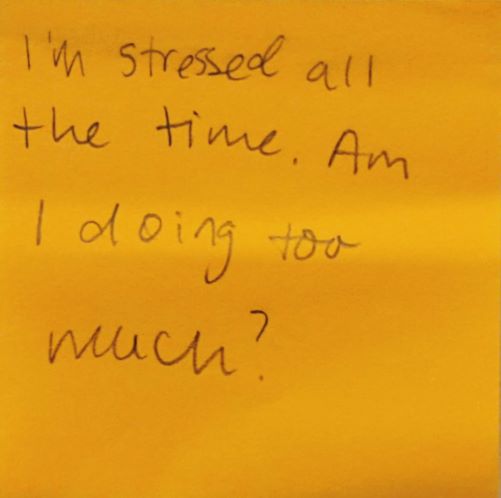
Maybe, or maybe it’s a time management issue? It would be good to figure out. Talk with your advisor, perhaps try Academic Coaching at the CFLC (bit.ly/BC-connors) and if you’re really stressed, University Counseling (bit.ly/BC-counseling), to see how you can find the right level of commitment in your busy life.
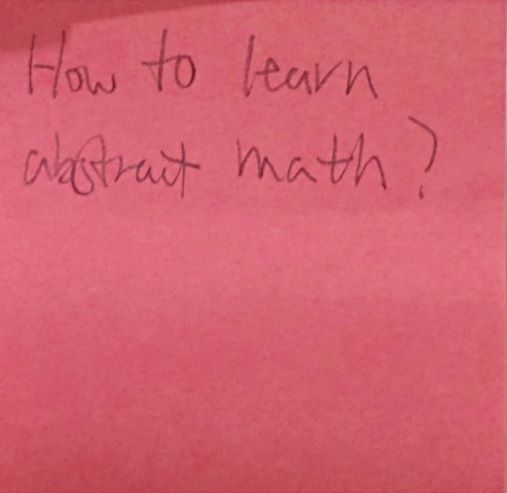
You could do worse than to start with Khan Academy, but there are some experts here on campus who could answer that question in depth: the Math Department: bit.ly/bc-math-dept
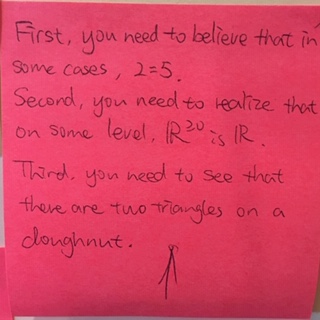
Sounds like this is the math version of believing 6 impossible things before breakfast?

It’s not an either/or situation – you can major in any subject and still get in the pre-med requirements. People who can help you figure out your path in life are your major advisor, the Pre-Health Program (bit.ly/BCPremedProg). and the Career Center (bit.ly/BC-career).

The nice folks at the Connors Family Learning Center (bit.ly/BC-connors) are experts at helping students with getting better at studying. Get in touch with them and ask them about Academic Coaching.
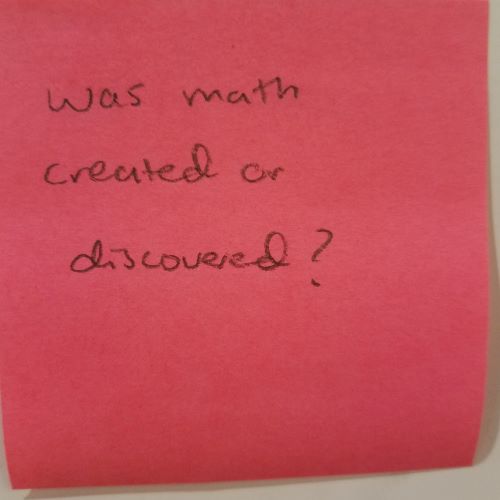
Though the word “mathematics” was coined by the Pythagoreans in 6th C. BC Greece, it’s clear that wasn’t the first math. Records of arithmetic, algebra, and geometry go back much further, to areas in the near East, near modern Egypt and Iraq, and it’s quite possible forms of mathematics existed long before the printed word (or number). Here are a few dozen books on the topic: bit.ly/bc-ancient-math